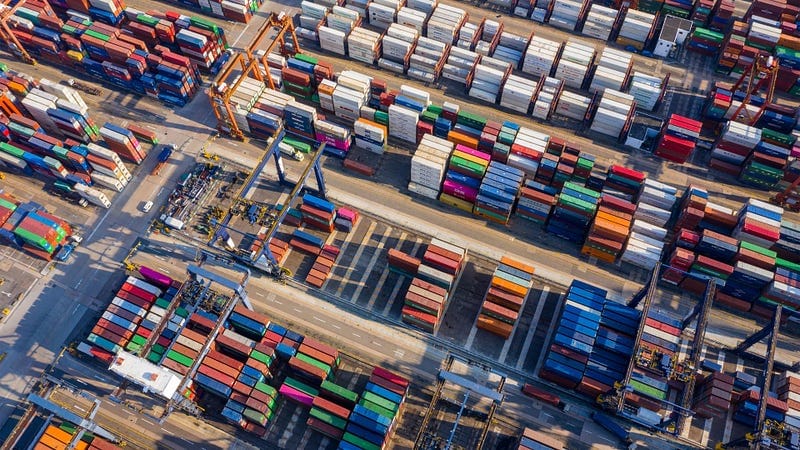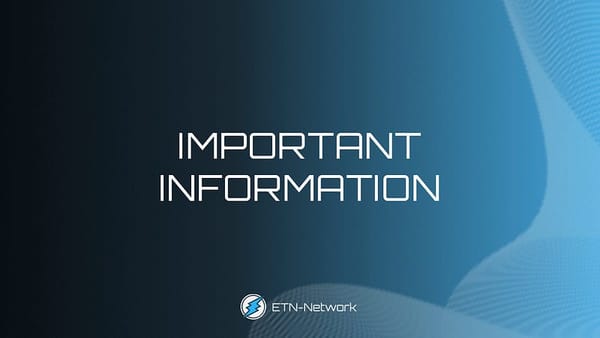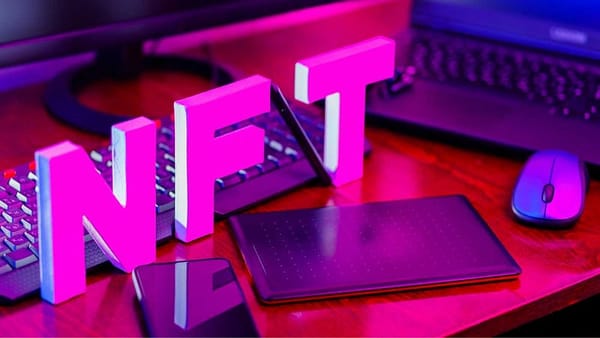Supply Chain Management: How Blockchain Could Help Overcome Fraud, Counterfeiting, and Unethical…
Technology has played a significant role in improving supply chain management over the years. The introduction of the barcode in the 1970s…

Supply Chain Management: How Blockchain Could Help Overcome Fraud, Counterfeiting, and Unethical Business Practises
Technology has played a significant role in improving supply chain management over the years. The introduction of the barcode in the 1970s allowed for more efficient tracking of inventory and sales data, whilst the adoption of the electronic data interchange (EDI) in the 1980s enabled businesses to exchange information electronically, reducing manual data entry and communication errors. In more recent years, the advent of cloud computing has provided real-time visibility and access to data from any location, whilst the use of IoT sensors, big data analytics, and artificial intelligence (AI) is helping to provide predictive maintenance, real-time inventory management, and demand forecasting.
Supply chain management is a complex process that involves multiple stakeholders, intricate transactions, and the need for transparency and trust. Traditional supply chains often face challenges such as lack of visibility, counterfeiting, and inefficient processes. According to a report by the Global Counterfeiting and Piracy Project, counterfeiting alone costs businesses worldwide an estimated $600 billion each year. One of the key advantages of blockchain is its ability to enhance transparency and traceability. A study from Cointelegraph Consulting and Insolar estimates the implementation of blockchain technology in supply chains could save businesses in Western Europe $450 billion in logistics-related costs.
Blockchain networks provide an immutable and decentralised ledger that records all transactions and events in the supply chain. This allows for real-time tracking of goods and raw materials at each stage of the supply chain. Every participant in the network can access and verify the data, ensuring transparency and trust. This transparency helps in identifying the origin of products, verifying authenticity, and detecting any potential issues or discrepancies. It can also be valuable when tracking the sustainability and ethical practices of suppliers, ensuring that their products are sourced and produced in a responsible manner, aligning with consumer preferences for environmentally and socially responsible products.
Examples of real-world blockchain projects

Automotive
In 2020, Ford Motor Company announced a partnership with IBM, LG Chem, Huayou Cobalt and RCS Global to develop a blockchain-based network to trace and validate the sources of cobalt. Cobalt is a mineral used in lithium-ion batteries for products such as electric vehicles, laptops and mobile devices. According to a report from Morgan Stanley, demand for cobalt is set to multiply eightfold by 2026. The majority of the world’s cobalt comes from the Democratic Republic of Congo, where there are concerns about unethical production, political instability and child labour in its mineral mines. The project uses blockchain technology to track the supply chain of industrially-mined cobalt and ensure its ethical sourcing. It aims to create an open, industry-wide network to trace and validate minerals for the automotive and consumer electronics industries.

Clothing
H&M, the Swedish multinational fashion retailer, announced in 2020 that it is exploring the use of blockchain technology to track and verify the authenticity of its products. The solution will enable customers to trace the origin and history of their clothing using a unique QR code, whilst also enabling H&M to track its supply chain more effectively, reducing the risk of fraud and counterfeiting. In addition to this, H&M is also exploring the use of blockchain technology to create a circular supply chain that would allow it to recycle and reuse materials more efficiently. By using blockchain to track the origin and quality of its materials, H&M hopes to create a more sustainable and ethical supply chain that benefits both the environment and its customers.

Food
In 2016, Walmart started working with IBM to develop a blockchain-based platform for tracking and tracing food products from farm to store. This platform, called the IBM Food Trust™ uses a permissioned blockchain to record and track information about food products as they move through the supply chain. By using blockchain technology, Walmart can improve the transparency and traceability of its supply chain, which can help to reduce food waste, improve food safety, and provide customers with more information about the products they buy.
How can businesses get started with blockchain?
Choosing the right blockchain is key. The choice depends on a number of factors, including transaction speed and cost, scalability, privacy, control, and energy consumption. Electroneum is a UK-based blockchain network that has been in operation since 2017. With only a handful of permissioned blockchain validators, the network is amongst one of the fastest, safest, and most efficient in the space today.
Electroneum’s validators are made up of established charities that use their rewards to further the amazing work they’re already doing for women and children around the world. From a network perspective, this is important for three reasons:
- The rewards are going to good causes rather than to mining/validator farms
- Validators are known to the network making it a safer environment to operate within
- The number of validators significantly reduces the amount of energy required to process transactions across the network.
With the launch of Project Aurelius (v6) later this year, interoperability with other networks will vastly improve thanks to the integration of the Ethereum Virtual Machine (EVM). This, in turn, will enable third-party developers to build on the Electroneum network for the first time, providing the benefits of a fast, low-cost, trusted network, with the flexibility to simultaneously adopt features from Ethereum and other EVM-compatible blockchains.
A key differentiating factor with Electroneum is its transaction speed and cost. With its forthcoming update, Electroneum will soon be several orders of magnitude cheaper than Ethereum, making it one of the most cost-effective platforms to build, deploy, and manage blockchain solutions at scale. Furthermore, with 5-second transaction speeds and instant finality, Electroneum will become one of the fastest blockchains to date.
If you work in supply chain management, or any kind of business that might benefit from blockchain integration, and would like to discuss any ideas or requirements you might have, be sure to reach out to us at: opportunities@electroneum.com




